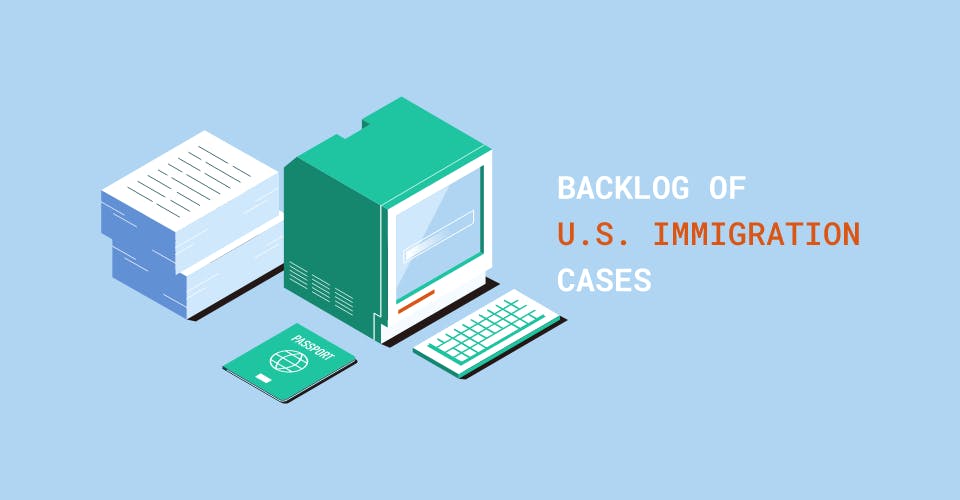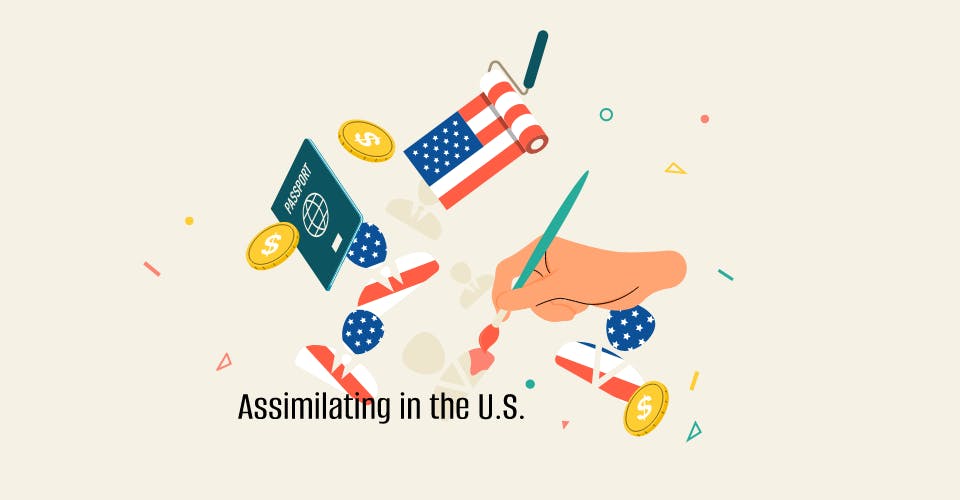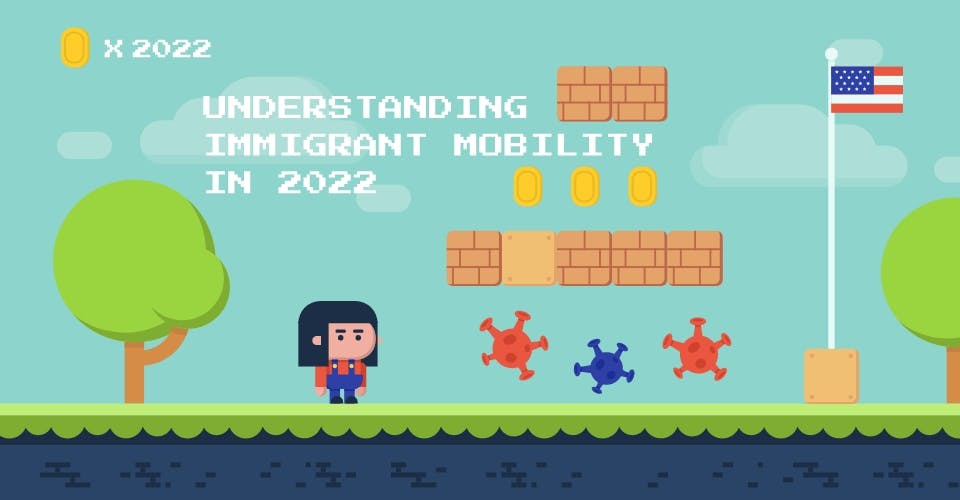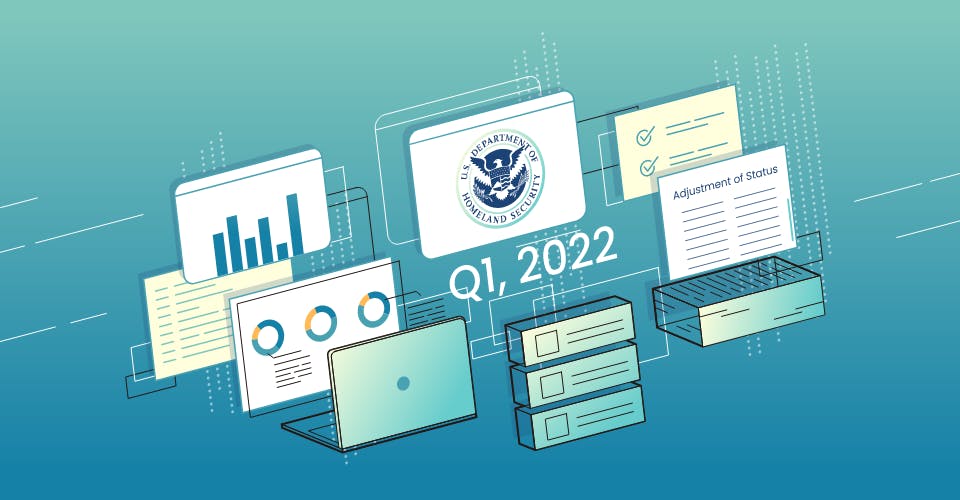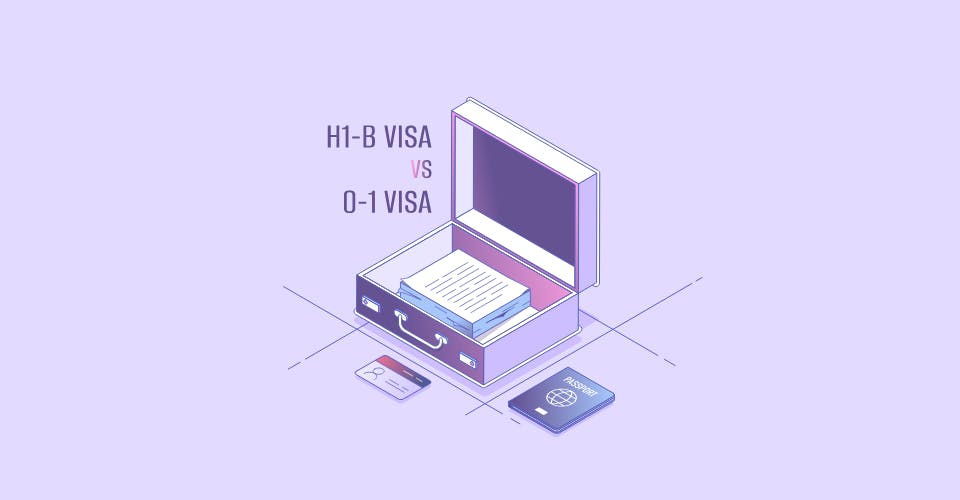For those on the sidelines of the immigration debate, it is hard to ignore the fact that March has been a very busy, and productive month for U.S. immigration. In terms of policy implementation, March has been a consequential month in 2022 for the amount of new rules that have been finalized by DHS. For example, in the beginning of the month, DHS made an executive decision to designate Ukrainians in the United States for Temporary Protected Status (TPS), which provided relief to thousands of Ukrainians already in the U.S. and unable to return to their damaged country.[1]
The USCIS then went on to protect Special Immigrant Juvenile (SIJ) petitioners from ageing out while their I-360 petition is pending. Next, the USCIS gave automatic working authorization to some spouses of non-immigrant visa holders, and the agency also proposed a new rule that will fundamentally change the asylum seeking process by allowing defensive asylum applicants to have their cases heard by a USCIS officer, instead of simply going into the backlogged immigration court system.
And finally, the USCIS announced they will be rolling out an expanded premium processing program, where more applicants and petitioners for employment based visas, as well as work permit applicants, can pay a premium processing fee to have their case expedited for a decision in 15 days.
Progress or Process
All of this progress begs the question of whether or not immigration has in fact become more fair. The national dialogue surrounding immigration always revolves around fairness and to some extent transparency. What people are interested in is whether or not immigration is actually working for more immigrants or migrants, or whether the United States remains an exclusionary zone designed to keep immigrants out.
I would argue at this current moment in U.S. immigration history that it is difficult to assess the entirety of immigration in the U.S. as a matter of fairness. Some policies are blatantly unfair, such as Title 42, which uses a public health doctrine to expel more migrants from the interior of the country, while some policies level the playing field—such as automatically giving work permit extensions to those who need them.
Therefore, instead of looking at U.S. immigration through the lens of being outraged that a policy is unfair, as many are, it is better to assess the momentum of policy change through inclusivity. What has the USCIS done to make immigration more inclusive? In this light, I believe that the USCIS is actually becoming more inclusive with some of their policy prescriptions, and therefore finally creating necessary change.
For example, the USCIS is finally addressing the ageing out policy with regard to SIJs. This means that certain petitioners who are on the brink of turning 21 when they are applying for a special visa that will keep them in the U.S., won’t be deported just because they turn 21 while their application is still pending. Looking at the institution this way, we can see that the USCIS is operating from a stance of tweaking existing policies to make them more inclusive of certain groups of vulnerable people—children being a prime example.
This doesn’t mean that other policies are inclusive, and there are still many problems—such as the fact that even though premium processing has been expanded, the filing fee to premium process is still $2500 and out of reach for many immigrant families.
Overall it seems that even though the USCIS is working to be more inclusive, some critics still see the backlog of cases and extreme processing times to be unfair policies that trump everything else. At this point, it seems that the USCIS has historically had a backlogged system, and there are many more applicants than workers to handle the excess of applications. Though this seems to be an HR issue in a post-pandemic phase that is separate from the actual policy prescriptions of late.

